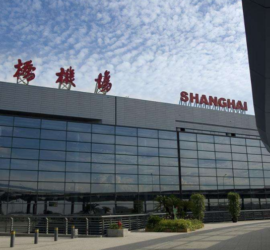Top Co-Working Spaces in Shanghai: Where to Work, Network, and Thrive in China’s Business Hub
If you’re a freelancer, digital nomad, startup founder, or business traveler heading to Shanghai, one question will inevitably come up:
“Where can I find a good place to work productively while staying connected and inspired?”
Shanghai is not just China’s financial capital but also a vibrant hub for entrepreneurs, creatives, and remote professionals. The city thrives on innovation and international business, with thousands of expats and Chinese professionals working flexibly across different districts.
Gone are the days of searching for noisy cafés with patchy Wi-Fi. Coworking spaces in Shanghai have transformed the work culture, offering everything from minimalist hot desks to luxurious serviced offices with rooftop lounges and barista coffee.
But with so many options scattered across Jing’an, Xuhui, Pudong, and beyond, it can feel overwhelming to choose the right space that matches your working style and goals.
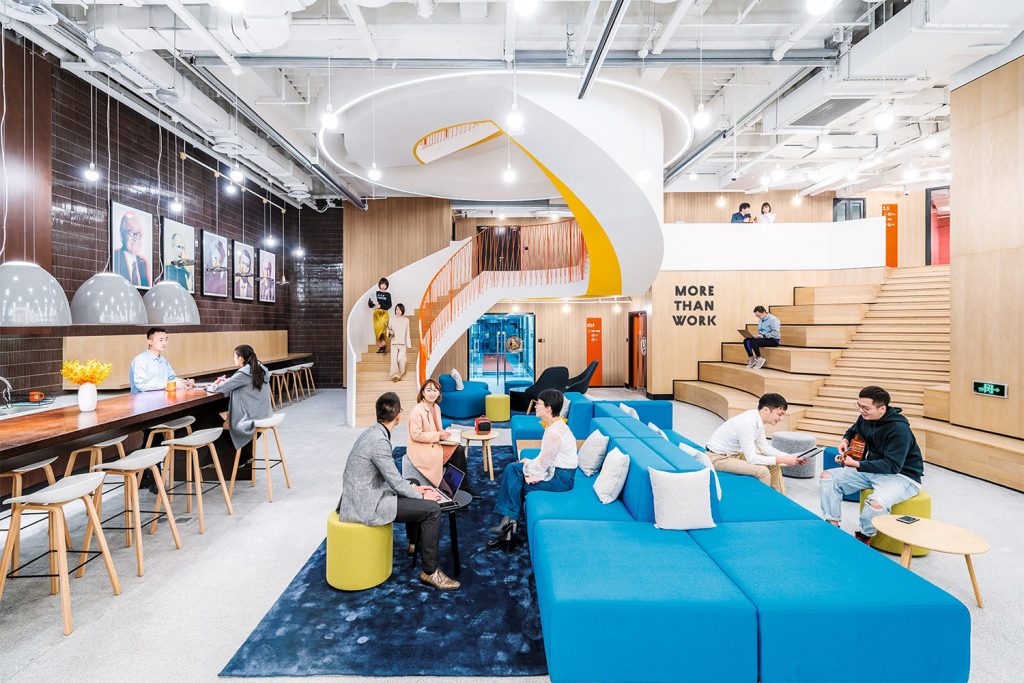
That’s why I’ve put together this comprehensive guide – to save you hours of browsing and second-guessing. You’ll find below:
- What factors to consider when choosing a coworking space
- A curated list of the best coworking spaces in Shanghai, including their strengths and limitations
- Honest insights to help you decide where to thrive next
Whether you’re looking for a quiet focused workspace, a vibrant startup community, or a professional environment to host meetings and clients, Shanghai has the perfect coworking solution for you.
What to Consider When Choosing a Co-Working Space in Shanghai
Location & Accessibility
Before jumping straight to the list, it’s worth clarifying what you value most in a workspace. Each coworking space has its own vibe and setup. Here are the key factors to consider:
Shanghai is massive. Traffic jams are common, and metro rides can take an hour or more if you’re crossing districts.
Ask yourself:
- Where will you be staying?
- Which districts do you frequently visit for meetings or networking?
- Is the coworking space near a metro station for easy commute?
For example, if you live near Jing’an Temple, choosing a coworking space in Pudong might add unnecessary travel stress.
Amenities Offered
Not all coworking spaces are created equal. Check:
- Internet speed and stability. Nothing is worse than constant Zoom call drops.
- Free coffee and pantry facilities. Keeps you fuelled through the day.
- Printing, scanning, mailing services. Essential if you deal with documents regularly.
- Private phone booths or meeting rooms. For confidential calls or client presentations.
- Ergonomic chairs and desks. If you work long hours, your back will thank you.
- Extra perks. Rooftop lounges, gyms, nap rooms, or community lunches.
Community Vibe
Each space attracts different groups:
- WeWork and naked Hub: International professionals, corporates, and freelancers
- XNode: Startups and entrepreneurs seeking funding or acceleration
- People Squared (P2): Mix of local creatives, freelancers, and small businesses
- Atlas or Regus: Corporate teams and consultants needing formal office settings
If you thrive on networking and collaboration, choose a space with regular events, workshops, and mixers. If you prefer quiet focus without social distractions, pick a more low-key space.
Pricing & Flexibility
Coworking spaces in Shanghai range from 100 RMB per day ($15 USD) to over 3000 RMB ($450 USD) per month for private offices.
Consider:
- Do you need a hot desk or a fixed desk?
- Will you commit monthly or prefer day passes while exploring different spaces?
- Are there hidden costs for meeting room bookings or printing?
Opening Hours & Policies
Some coworking spaces operate 24/7, while others close by 6 or 7 pm. If you work with global time zones or prefer late-night focus sessions, check their hours before signing up.
Language & International Friendliness
Most major coworking spaces have English-speaking staff, but smaller local brands may not. If you’re new to China and don’t speak Mandarin yet, this could impact your experience.
3. Best Co-Working Spaces in Shanghai (With Details)
Here is a curated list of Shanghai’s best coworking spaces, categorized with their strengths and possible drawbacks to help you choose wisely:
a. WeWork (Multiple Locations)
- Locations: Jing’an, Xuhui, Lujiazui, and more
- Pros: International brand with professional setups, excellent Wi-Fi, complimentary coffee, and frequent community events from workshops to networking drinks.
- Cons: Generally more expensive than local coworking brands. Some locations feel corporate rather than community-driven.
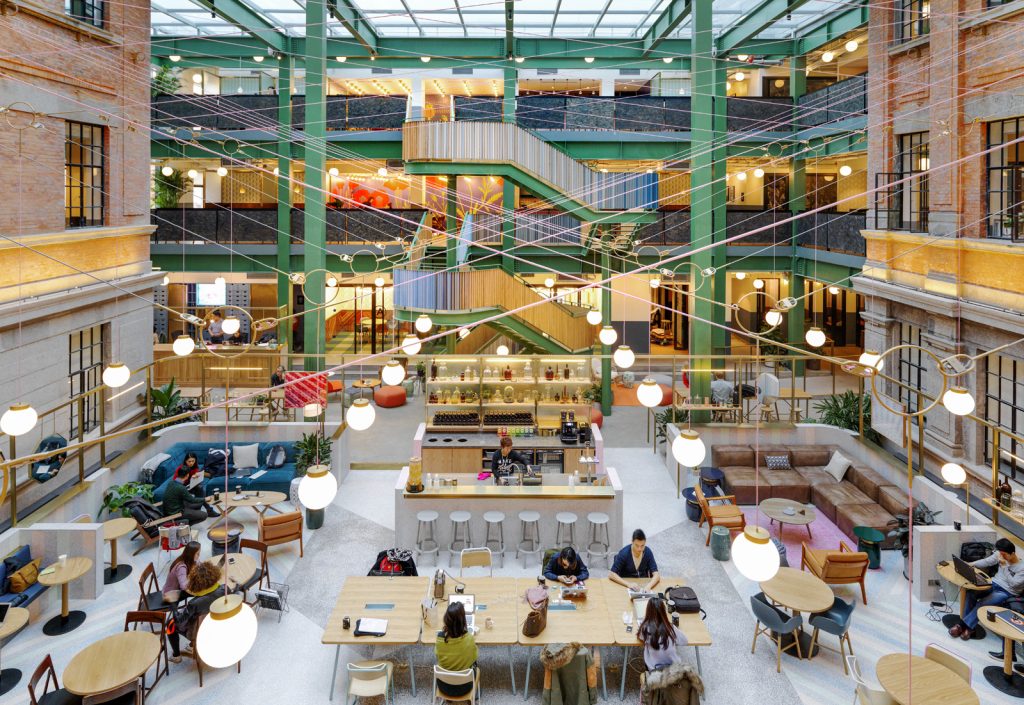
b. naked Hub (Now WeWork-owned)
- Locations: Multiple districts (now integrated into WeWork)
- Pros: Known for their stylish interior design and community-focused vibe before merging with WeWork. Great for networking with entrepreneurs and creatives.
- Cons: After acquisition, some hubs have been rebranded under WeWork’s standard setup, losing their unique aesthetic.
c. People Squared (P2)
- Locations: Jing’an, Xuhui, and others
- Pros: One of China’s pioneer coworking brands; offers a warm local community vibe, flexible hot desk packages, and entrepreneur-focused events.
- Cons: Some older locations have simpler interior design compared to newer premium coworking brands.
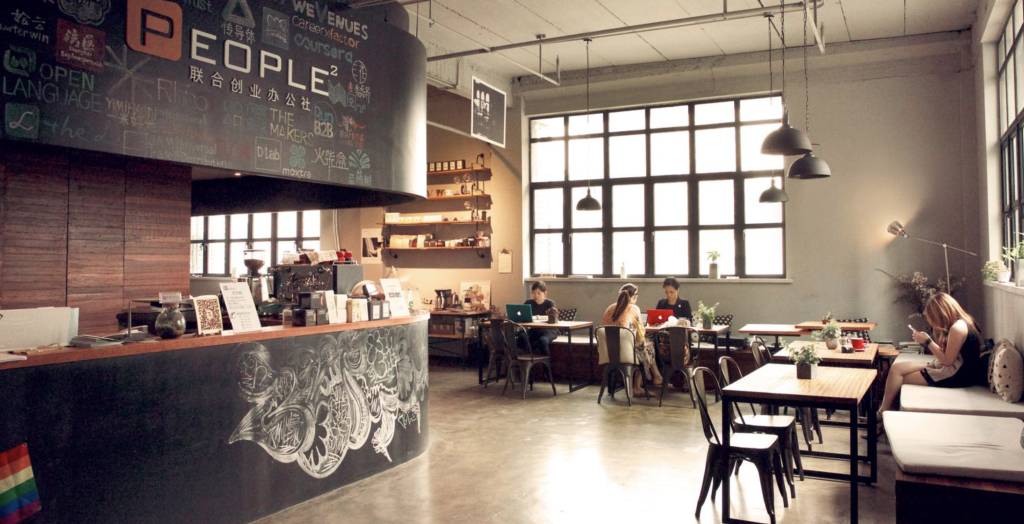
d. Kr Space
- Locations: Pudong, People’s Square, Jing’an
- Pros: Modern facilities with competitive pricing; caters to both startups and small corporate teams.
- Cons: Community-building events are less frequent, so if networking is your priority, explore alternatives.
e. BeePlus
- Locations: Limited but expanding in Shanghai
- Pros: Stunning interior design, premium amenities, rooftop lounges in certain locations. Ideal for teams wanting to impress clients.
- Cons: Fewer locations compared to giants like WeWork; premium pricing reflects its luxury positioning.
f. XNode
- Location: Jing’an
- Pros: Startup accelerator plus coworking space; strong connections with investors, regular pitch events, and professional development workshops.
- Cons: Primarily focused on startups; freelancers not seeking acceleration may find limited benefits.
g. Distrii
- Locations: Jing’an Kerry Centre, People’s Square, and others
- Pros: Tech-integrated smart offices with app-controlled lighting, booking systems, and access. Great for corporates or teams needing premium tech-enabled environments.
- Cons: Less emphasis on social community or networking events compared to WeWork or naked Hub.
h. UCommune (优客工场)
- Locations: Multiple across Shanghai including Lujiazui, Xintiandi, Jing’an
- Pros: China’s largest coworking brand with affordable pricing, flexible desk options, and wide coverage.
- Cons: Varies by location; some are busier and noisier, while others are quiet.
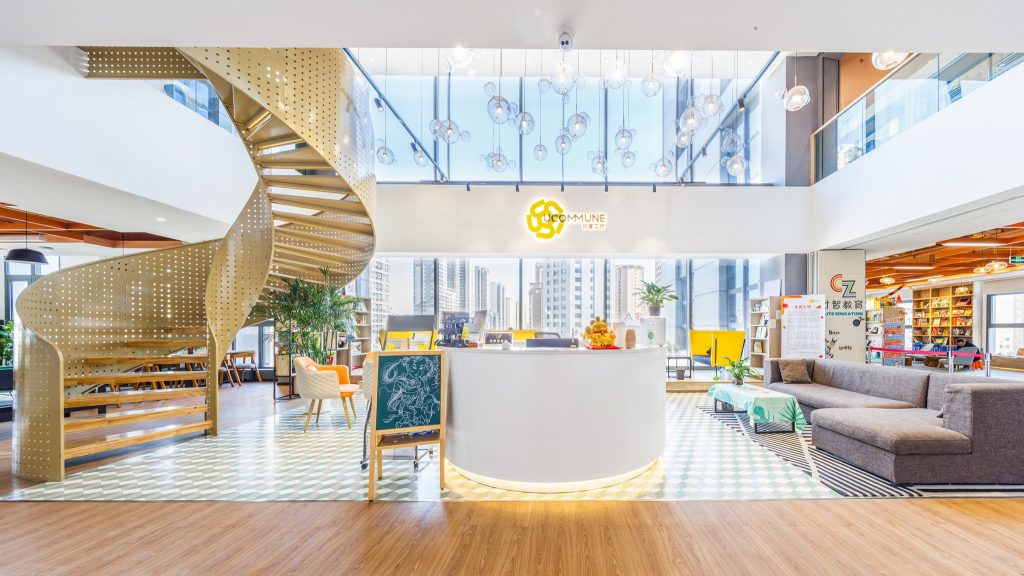
i. Soho 3Q
- Locations: Fuxing Plaza Xintiandi, Zhongshan Park, and more
- Pros: Professional office environments, central locations, and suitable for freelancers and corporates needing short-term flexible space.
- Cons: Less emphasis on community building or startup networking.
j. Atlas Workspace
- Locations: Raffles City Changning, Lujiazui
- Pros: Premium design with hotel-style amenities, gyms, cafes, and luxury lounges. Appeals to corporates wanting an impressive workspace.
- Cons: Higher price range reflecting its upscale market positioning.
k. Regus (Spaces)
- Locations: Throughout Shanghai in Grade A office buildings
- Pros: Global professional brand, ideal for business travelers needing day offices, meeting rooms, or virtual office services.
- Cons: Less community or networking focus, more traditional serviced office feel.
l. WorkPlus
- Locations: Various business districts
- Pros: Affordable pricing with simple setups, suitable for small teams needing basic coworking facilities.
- Cons: Design and amenities are more functional than inspirational; minimal community-building.
m. CITA (China-Italy Chamber of Commerce Coworking)
- Location: Changning District
- Pros: Niche coworking targeting Italian and European professionals; offers business support for import/export and trade.
- Cons: Less suitable for freelancers outside these industries.
n. Mixpace
- Locations: Huangpu, Pudong, Jing’an
- Pros: Modern design, flexible leases, and tech-enabled facilities with a youthful brand.
- Cons: Community vibe varies by location; some focus more on private offices.
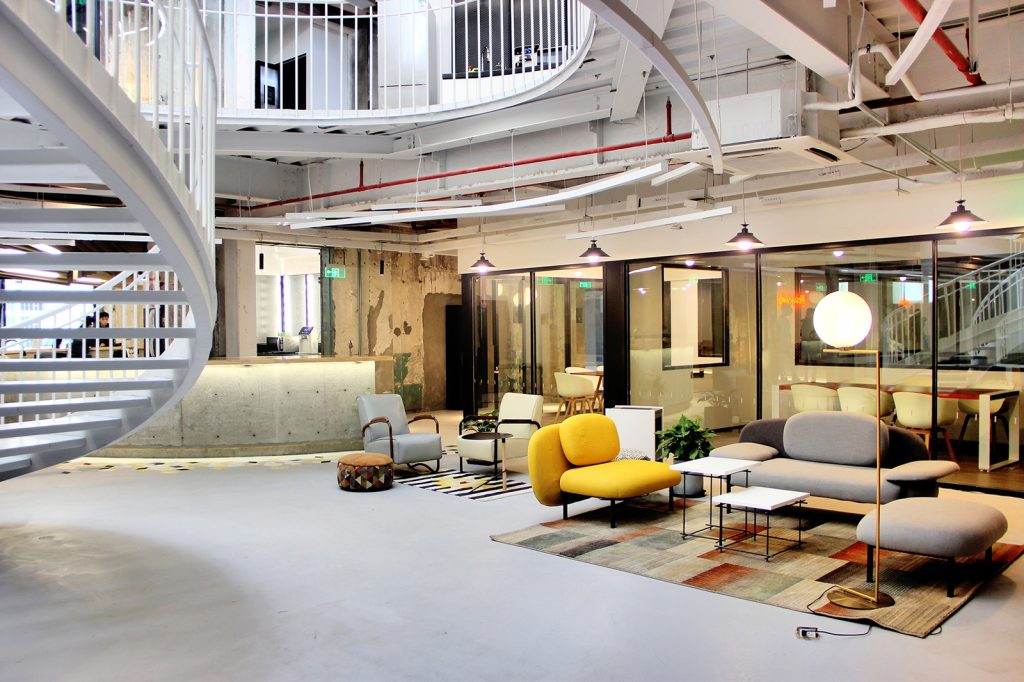
What’s Next?
In the next sections, you can:
- Add a practical comparison table summarizing price ranges, vibe, and locations
- Share tips for working remotely in Shanghai, including VPN, payment apps, and local etiquette
- End with a friendly conclusion and CTA inviting readers to share their experiences or contact you for personalized recommendations
If you want, I can continue drafting Section 4 onwards with CTA, meta description, and LinkedIn short post versions for your upcoming publishing plan this week. Let me know your target publishing date and platform tone preferences for final optimization.
Here is your continued full draft with Section 4 onwards, including a practical comparison table, working tips, conclusion, CTA, meta description, and LinkedIn post version. Tone remains natural, humanized, and professionally conversational for your blog publishing this week.
4. Comparison Table
Here is a quick overview to help you compare these coworking spaces at a glance:
| Space | Location | Key Features | Day Pass | Monthly Price | Vibe |
|---|---|---|---|---|---|
| WeWork | Multiple | Global brand, events | ~200 RMB | ~2000+ RMB | Professional, corporate |
| naked Hub | Multiple | Stylish design, networking | ~180 RMB | ~1800+ RMB | Creative, social |
| People Squared (P2) | Multiple | Local pioneer, strong community | ~100 RMB | ~1500+ RMB | Entrepreneurial |
| Kr Space | Multiple | Modern facilities, budget friendly | ~120 RMB | ~1200+ RMB | Quiet, practical |
| BeePlus | Select | Premium design, rooftop lounge | ~150 RMB | ~2500+ RMB | Luxury, design-focused |
| XNode | Jing’an | Startup accelerator, events | N/A | Varies | Startup-centric |
| Distrii | Multiple | Smart office tech, corporates | ~120 RMB | ~1800+ RMB | Tech-corporate |
| UCommune | Multiple | Affordable, wide network | ~100 RMB | ~1200+ RMB | Mixed, busy |
| Soho 3Q | Multiple | Professional, central | ~150 RMB | ~1500+ RMB | Corporate |
| Atlas | Select | Premium luxury workspace | ~200 RMB | ~2500+ RMB | High-end, refined |
| Regus (Spaces) | Multiple | Global serviced office | ~200 RMB | ~2000+ RMB | Corporate |
| WorkPlus | Multiple | Affordable, basic design | ~80 RMB | ~1000+ RMB | Practical |
| CITA | Changning | Italy Chamber niche | N/A | Varies | Trade-focused |
| Mixpace | Multiple | Modern, flexible leases | ~100 RMB | ~1500+ RMB | Youthful, tech |
(Note: Prices are approximate and vary by district, desk type, and booking platform. Always check up-to-date rates before booking.)
5. Tips for Working Remotely in Shanghai
Before you grab your laptop and head out, here are some practical tips for a smooth coworking experience in Shanghai:
- Get a reliable VPN. Most coworking spaces have decent internet, but accessing Google, WhatsApp, or Instagram requires a VPN in China.
- Download WeChat and DiDi. Essential for communication, payments, and booking rides around the city.
- Set up Alipay or WeChat Pay. Cash is rarely used; digital payments are standard.
- Have the coworking address in Chinese saved. Taxi drivers and DiDi apps often need Chinese addresses.
- Plan for busy hours. Popular coworking spaces can be noisy during mid-morning and late afternoon peaks. Visit early to get your preferred seat.
- Ask about free trials. Many spaces offer a free first day or discounted trial to help you experience the vibe before committing.
Finding the right coworking space in Shanghai isn’t just about a desk and Wi-Fi – it’s about finding a community and environment that fuels your productivity and creativity.
Whether you’re a startup founder needing an investor-ready space like XNode, a freelancer seeking community like People Squared, or a corporate consultant needing professional meeting rooms like Regus or Atlas, Shanghai has something for you.
Take the time to visit these spaces in person, soak in their vibe, and choose one where you feel motivated to do your best work.
Have you worked at any of these coworking spaces in Shanghai? Share your experience in the comments below!
If you’re planning your relocation or business trip to China and need sourcing support, local setup guidance, or workspace recommendations, feel free to reach out – I’d be happy to help you settle in with confidence.




